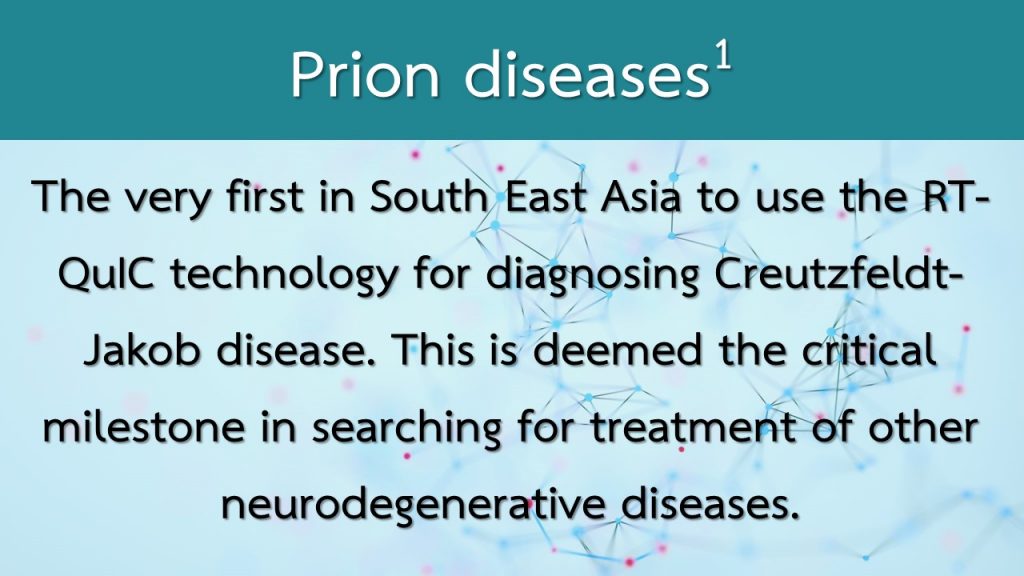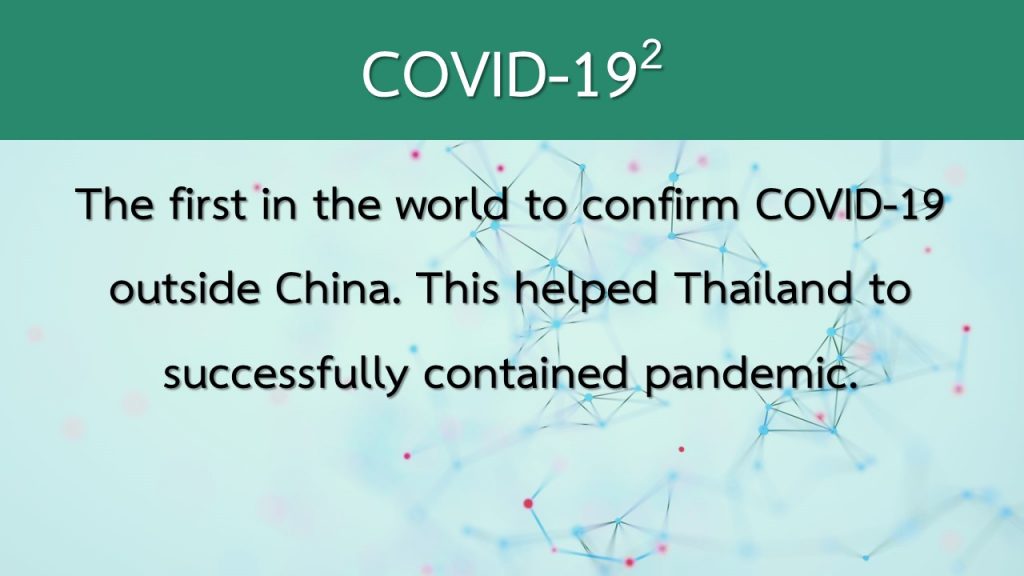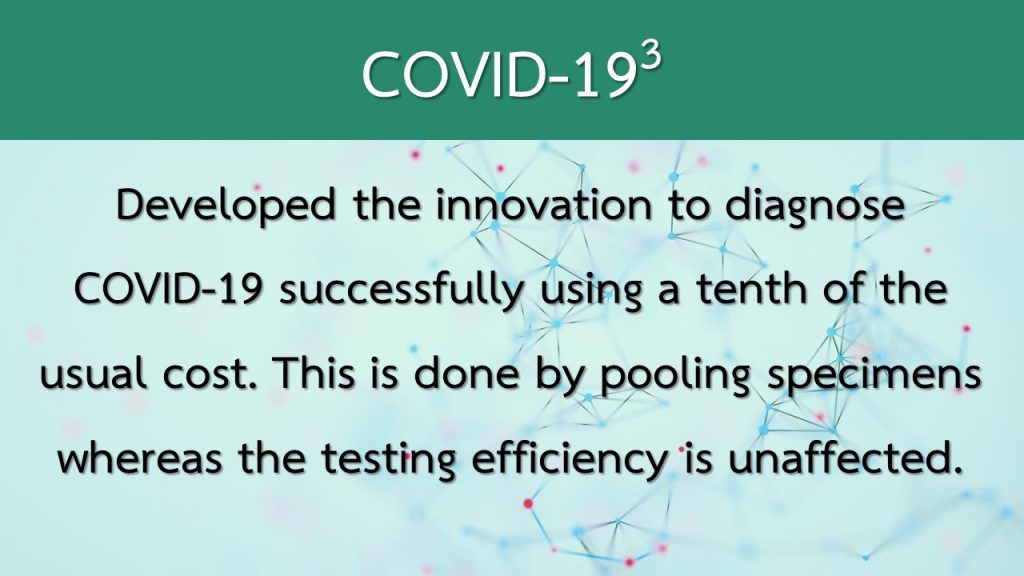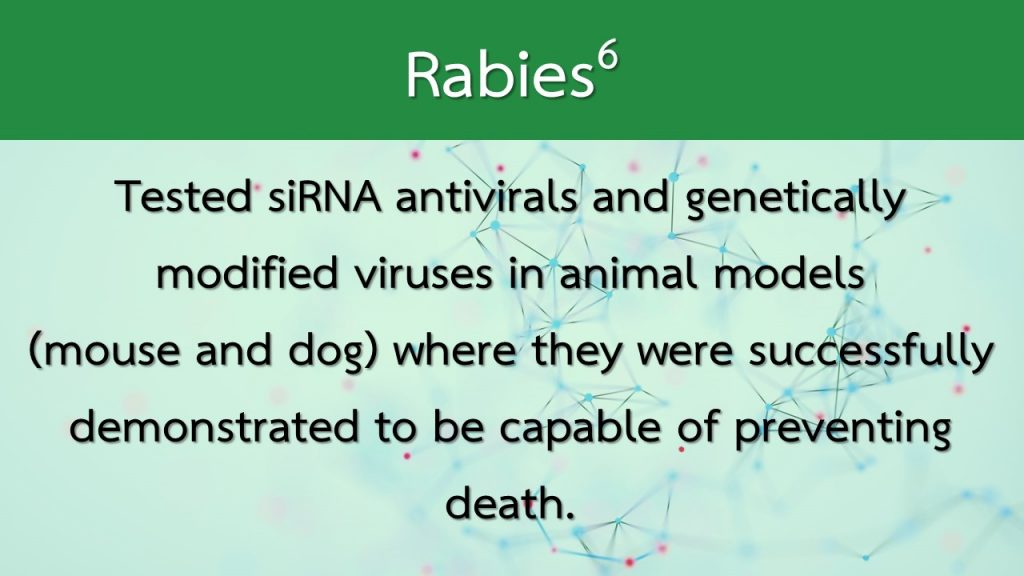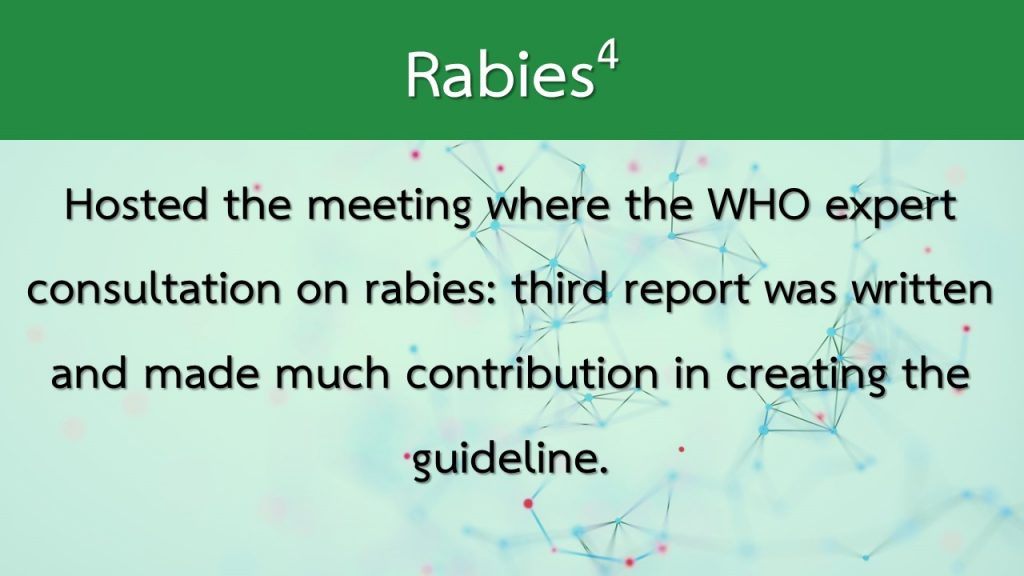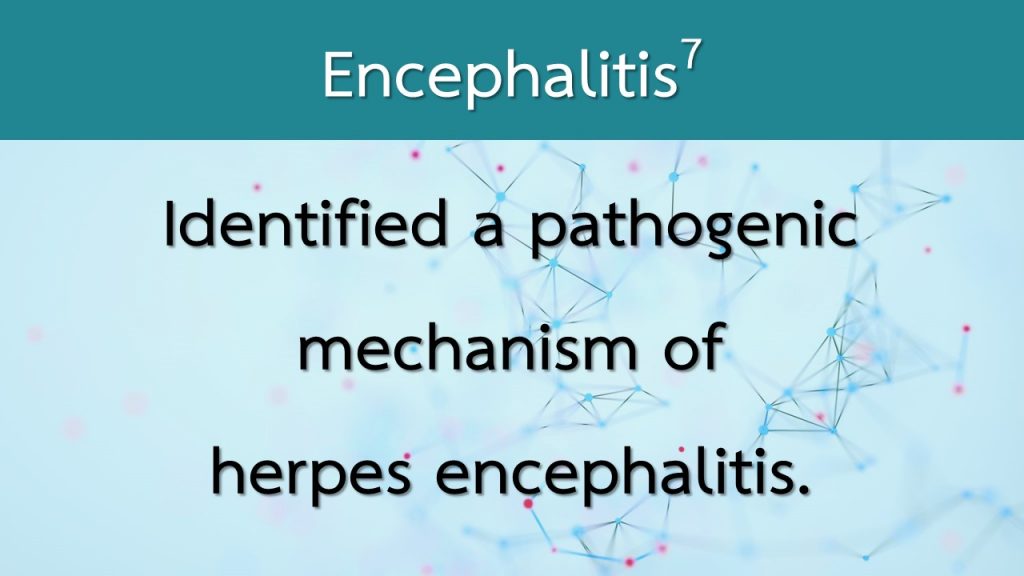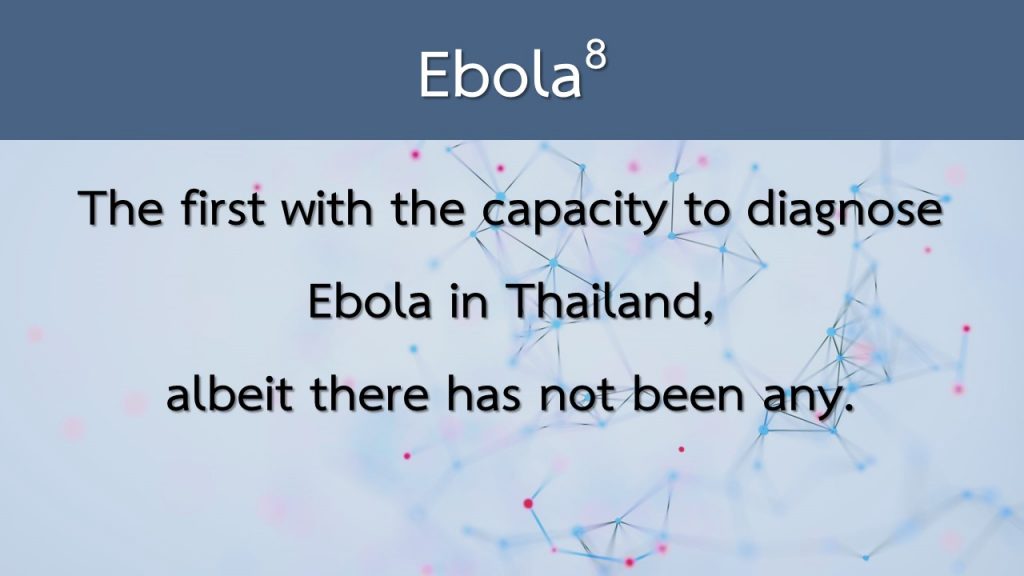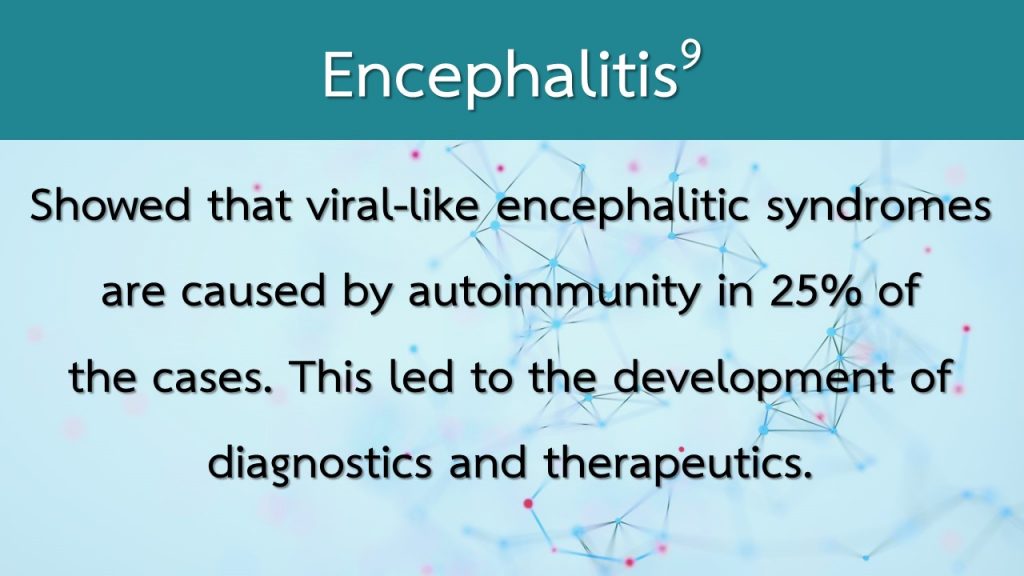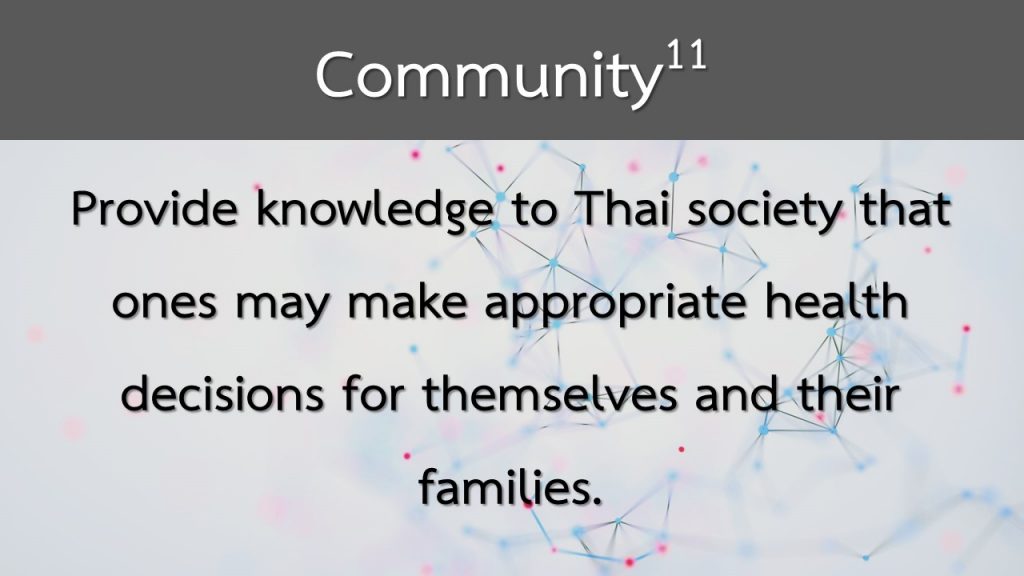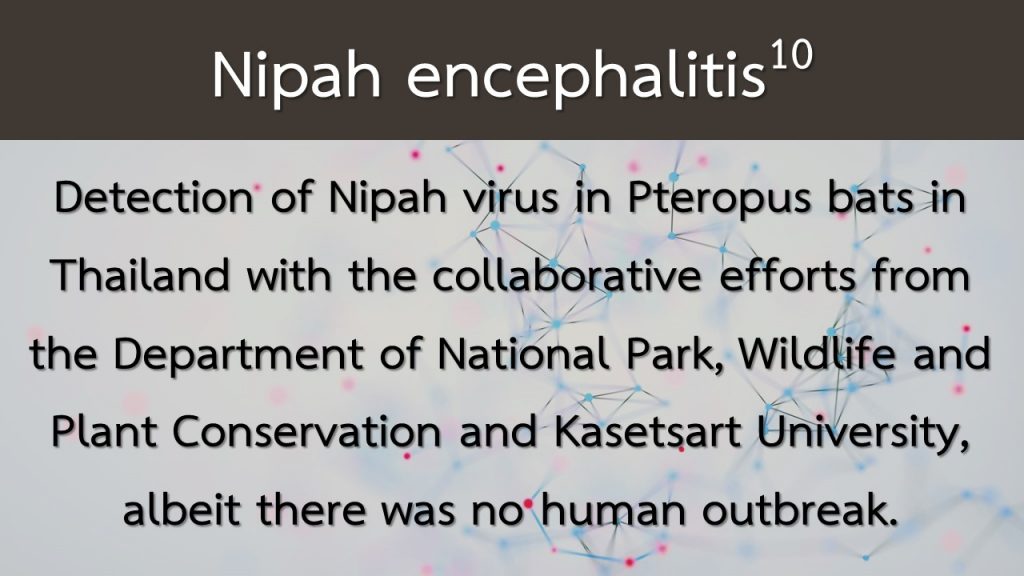Thai Red Cross Emerging Infectious Diseases
Health Science Centre
King Chulalongkorn Memorial Hospital
An international Health Science Center in Research, Medical care, Emerging Infectious Diseases, and Brain Diseases.
The Laboratory for Neurological Diseases was founded in October 2000 by funding from the Thai Red Cross Society with the primary missions of diagnosis and treatment of both infectious and non-infectious brain diseases along with the comprehensive development of innovative diagnostics for brain diseases and rabies research.
Later, in October of 2008, the centre was appointed by the World Health Organization as the World Health Organization Collaborating Centre for Research and Training on Viral Zoonoses which increased emphasis on wildlife-to-human viral infections and emerging infectious diseases in the realms of diagnosis, research and surveillance.
This effort had led to an improvement in the capacity of diagnosing severe emerging diseases including ones that has never occurred in Thailand such as Ebola, MERS or yellow fever. The centre itself could diagnose the first MERS patient in Thailand and the world’s first Covid-19 patient outside China. For the latter case, it took only 8 hours for provisional diagnosis and was subsequently confirmed by genetic sequencing within 24 hours.
Recently, the centre collaborated with various sectors in the hospital to form the Emerging Infectious Diseases Health Science Centre as a part of the Emerging Infectious Disease Centre, Faculty of Medicine, King Chulalongkorn Memorial Hospital that was approved according to the order of King Chulalongkorn Memorial Hospital No. 1151/2016 dated 20 September 2016.
The outstanding works of Thai Red Cross Emerging Infectious Diseases Health Science Centre
Vision
Internationally Renowned Health Science Centre in research, diagnosis, treatment and control of emerging infectious diseases and brain diseases.
Mission
- Upstream Operation
- Advance Innovation
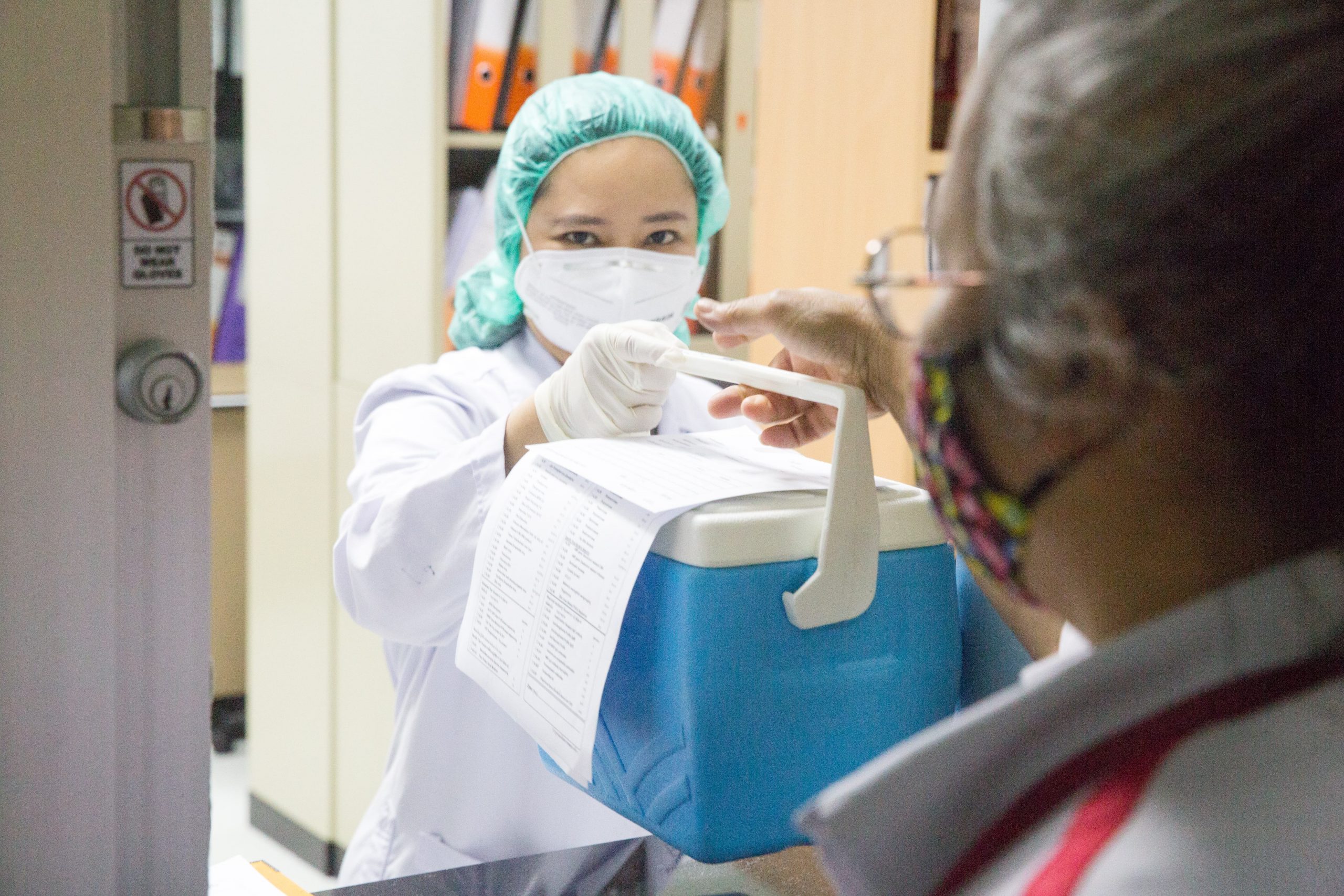
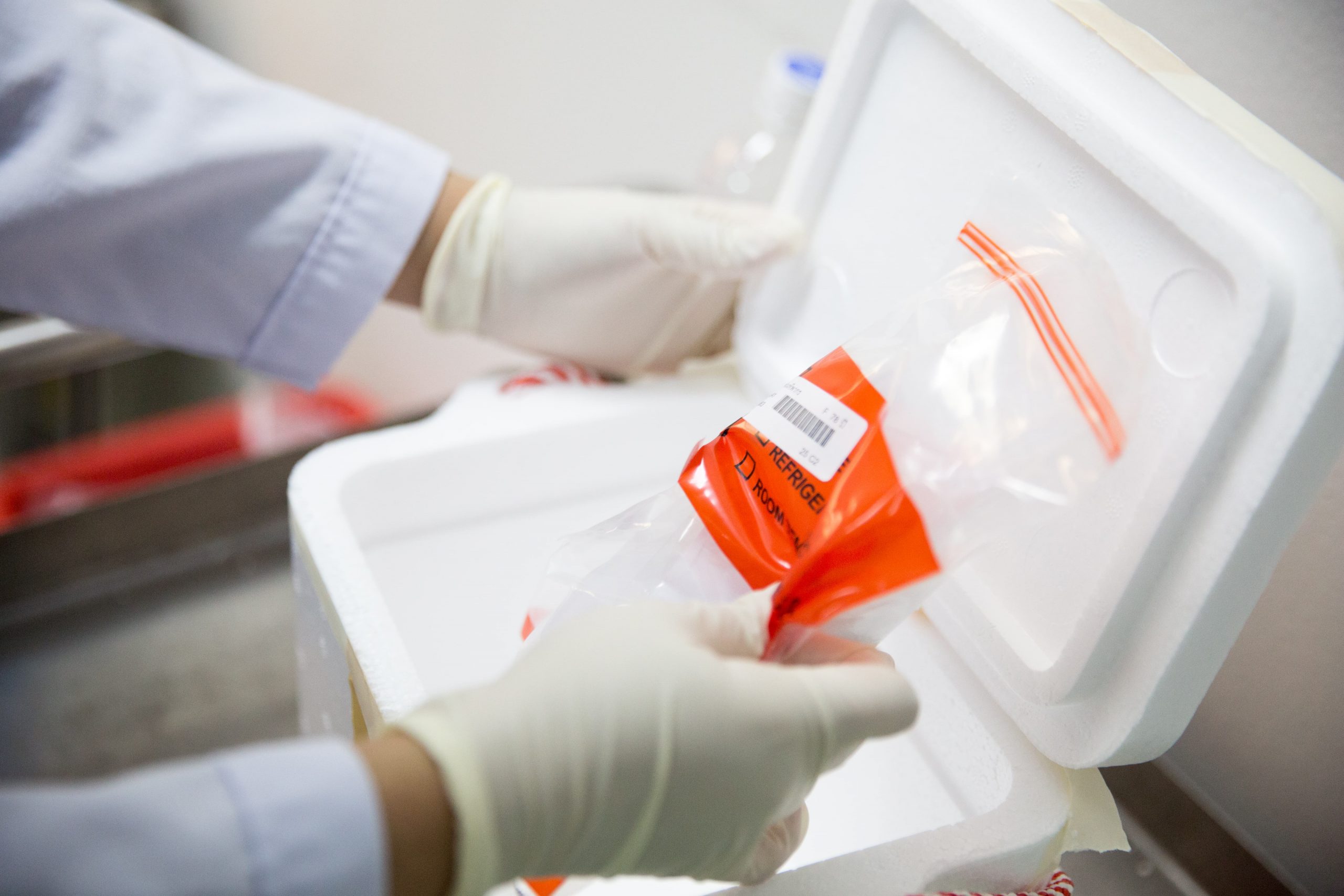
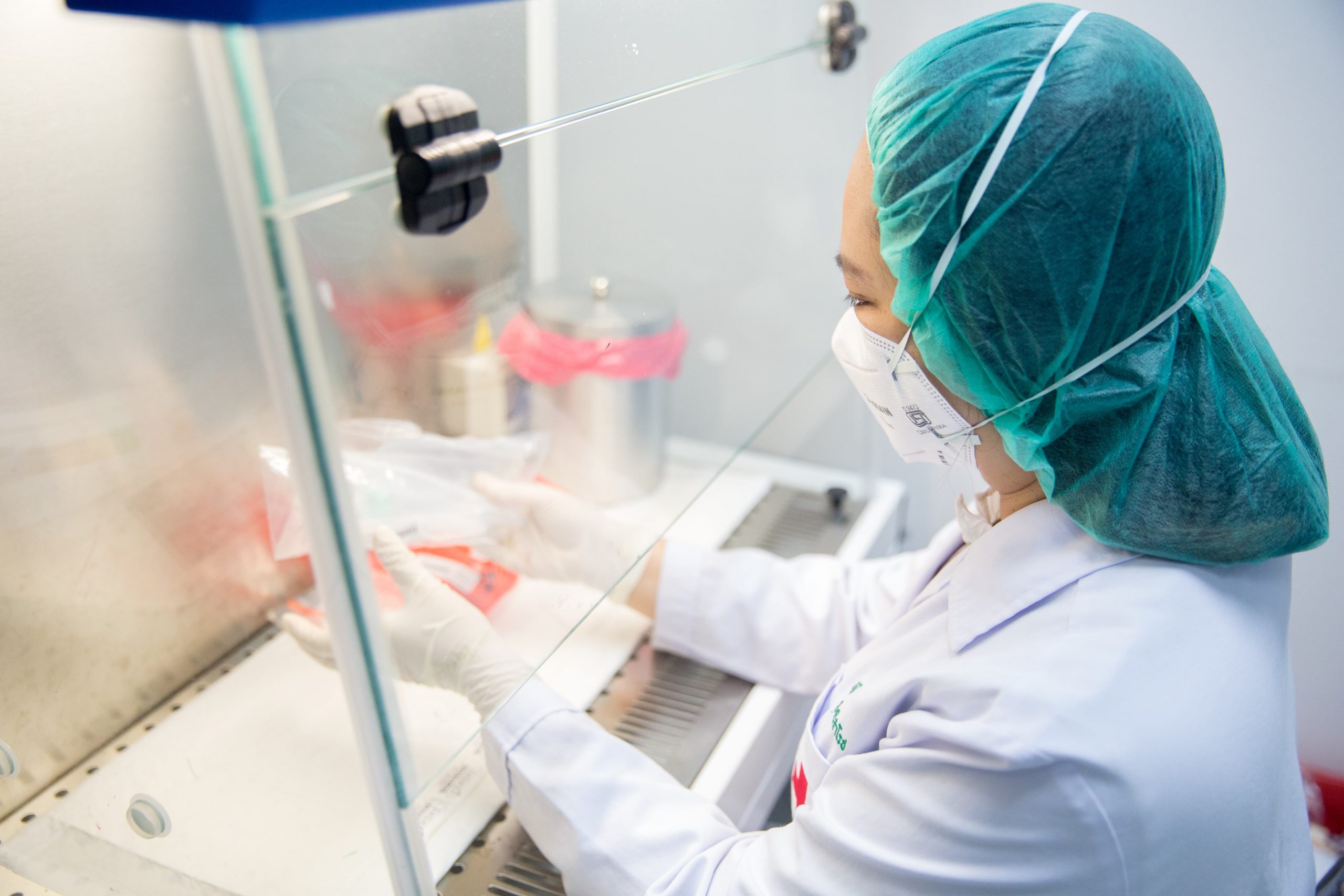
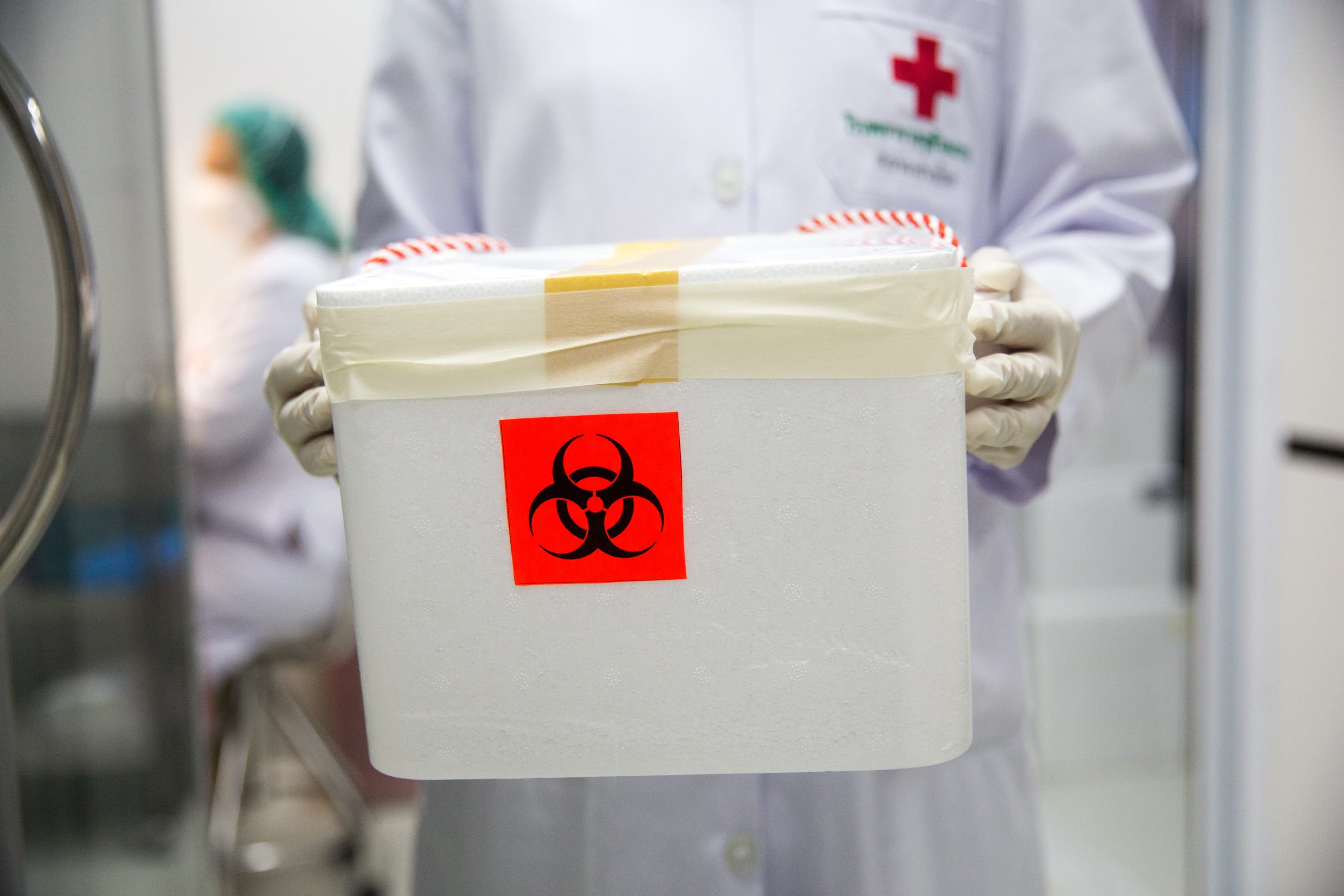
The Thai Red Cross Emerging Infectious Diseases Health Science Centre consists of the following subdivisions:
1. Registration and biobank
2. Service laboratory
- Infectious diseases
- Brain diseases
3. Research and Development
- Research and innovation
- Bioinformatics and genetic database
4. Administration


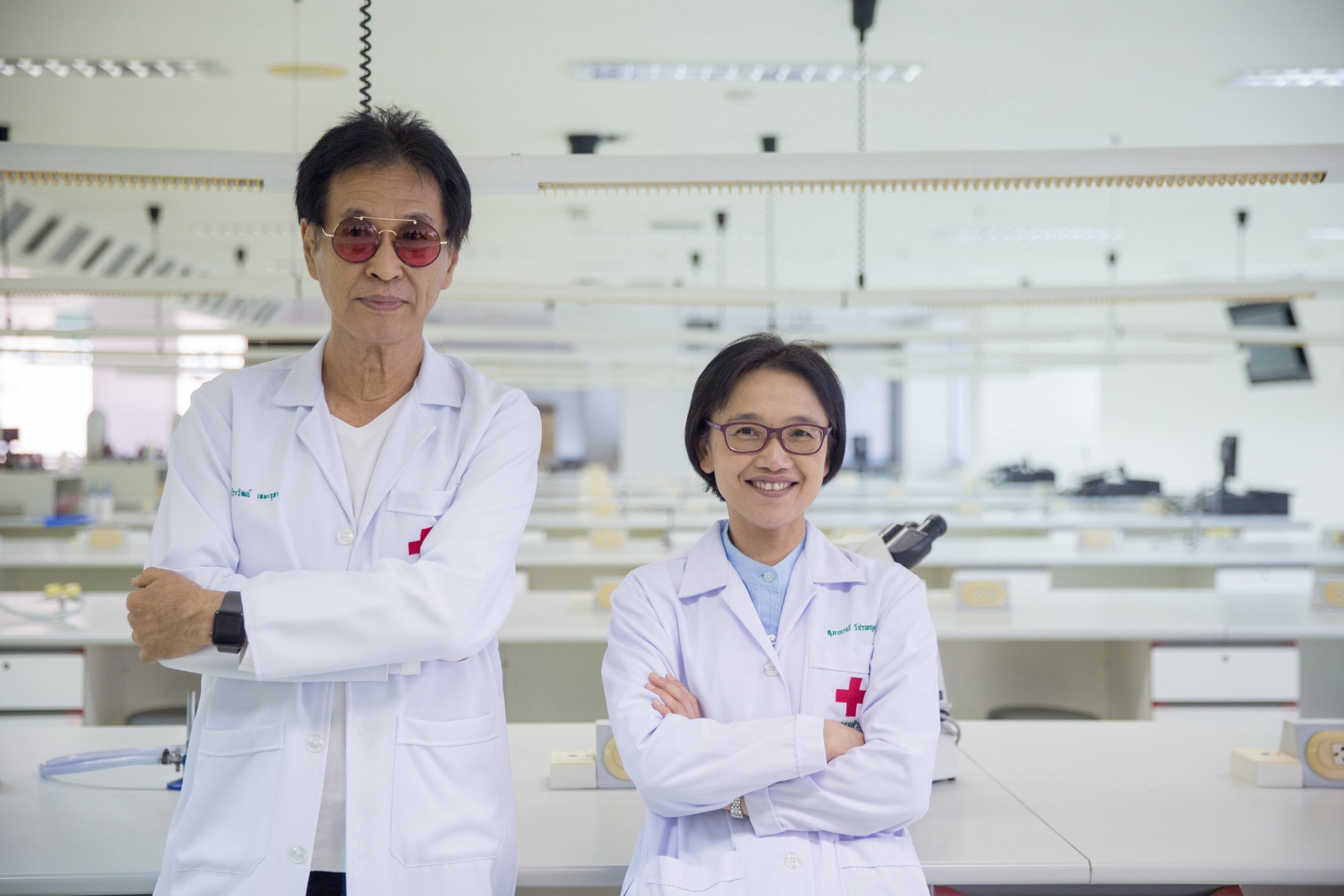
Services
1. Laboratory diagnostic services
- Priority diseases
To perform tests, using high-throughput DNA sequencing technology, on specimens from patients with priority emerging infections or endemic diseases that are likely to mutate and intensify their severity such as dengue, Zika, influenza or diarrheal infections. These diseases tend to be easily disseminated or are associated with morbidity/mortality and could potentially generate a public health emergency. - Cross borders infectious diseases
To develop the technology and laboratory services for diagnosis of non-endemic diseases with the potential to cross geopolitical boundaries and poses epidemic threat in Thailand such as Ebola, yellow fever or MERS in order to proactively identify, mitigate or control such occurrence. - Novel emerging infectious diseases
To investigate infectious diseases from unknown causes using advanced molecular diagnostics. This could lead to the discovery of a novel pathogen or a novel syndrome caused by a known pathogen. - Brain diseases
Comprehensive diagnostic tests for brain diseases, both infectious and non-infectious, including immune-mediated diseases, neurodegenerative diseases, etc. The service is provided not only to patients from King Chulalongkorn Memorial Hospital but also to other patients both domestically and internationally.
2. Academic services
To assist the Ministry of Public Health on research, diagnostics, treatment and control of emerging diseases and brain diseases in various dimensions. These services include:
- Outbreak investigations on diseases of unknown causes
- Research on biomarkers of dementing illnesses as a mean to dampen the anticipated consequences of the inevitable demographic transformation to ageing society
- Development of clinical practice guidelines and diagnostic manuals
- Provide committee/experts for the Ministry of Public Health
- Organizing workshops for training and knowledge transfer at both academic and public levels
- Guest speaker for external organizations
- Organize a website with the primary aim of public education and providing an accurate understanding of emerging infectious diseases [www.trceid.org].
3. Emerging disease response preparedness
- Execute upstream investigation, collaborating with nationwide and international efforts, in order to identify the ultimate sources of new pathogens and prepare for their emerging infections.
- Develop the technology to diagnose, prevent, treat and control emerging diseases from a diverse range of pathogens including ones whose outbreak has never occurred in Thailand such as mad cow disease.
- Develop innovations for diagnosing and predicting progression of neurodegenerative diseases at the earliest stages when there is no symptom. This technology will be rapid, convenient, affordable and widely available for practice in most settings. It will provide us with an accurate depiction of the incidence of symptomatic disease and the accompanying socioeconomic burden in the near future. From the standpoint of national policy, this data will guide us on how to address, prevent and search for novel therapeutics.
- Establish national and international networks for development and technology transfer as well as innovations for upstream investigations.
4. Proactive development for emerging diseases
- Research and development, prevention-treatment: vaccines, antivirals, novel therapeutics.
- Conduct basic science research in order to acquire the knowledge needed for applying to the treatment and control of both infectious and non-infectious diseases.
- Infectious disease biobanking for retrospective investigation of causative agent and research.
- Neurodegenerative disease biobank, which will facilitate research on molecular pathology, development of diagnostic assays and ultimately lead to effective treatment.
- Clinical genomic integration platform (CGIP).
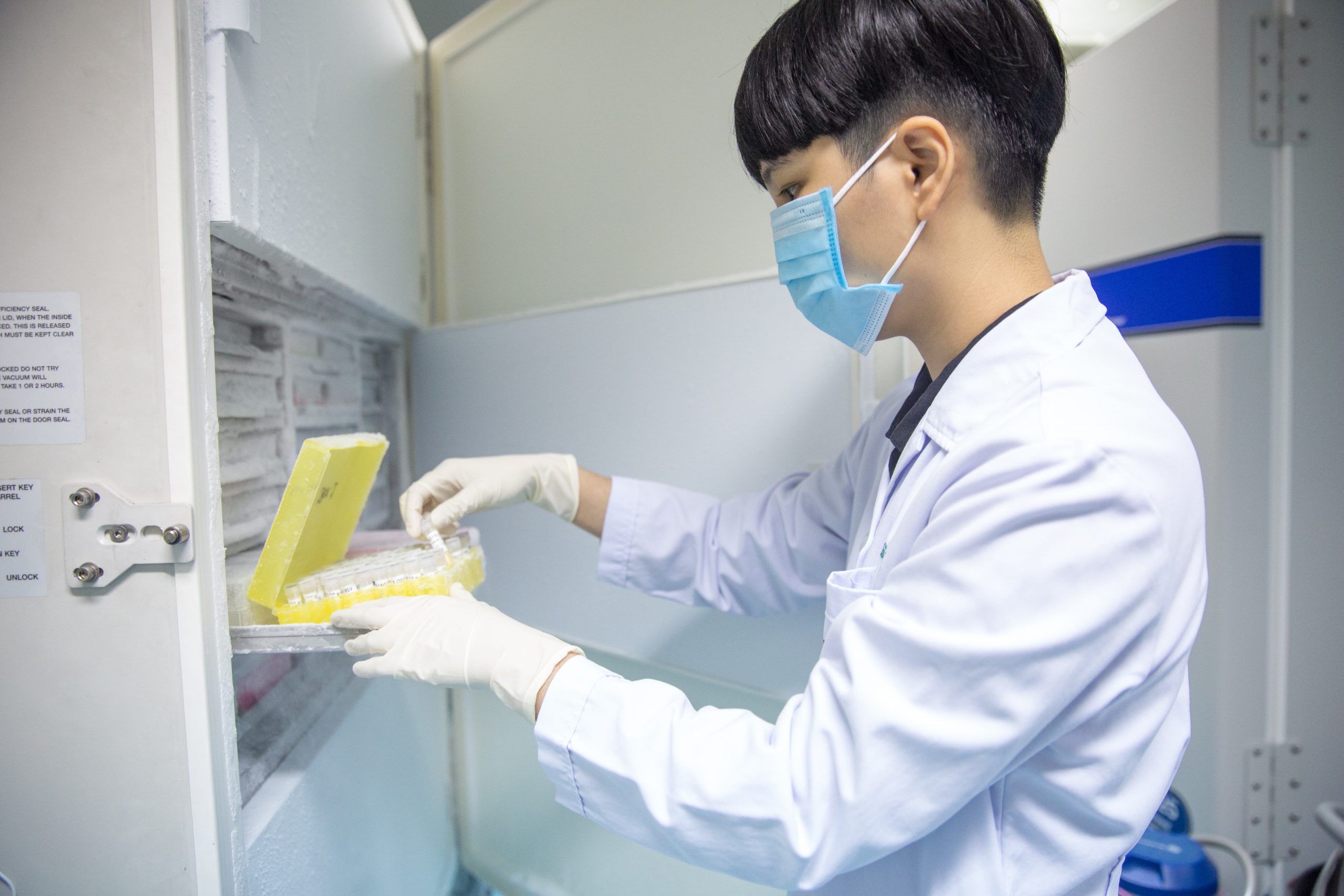
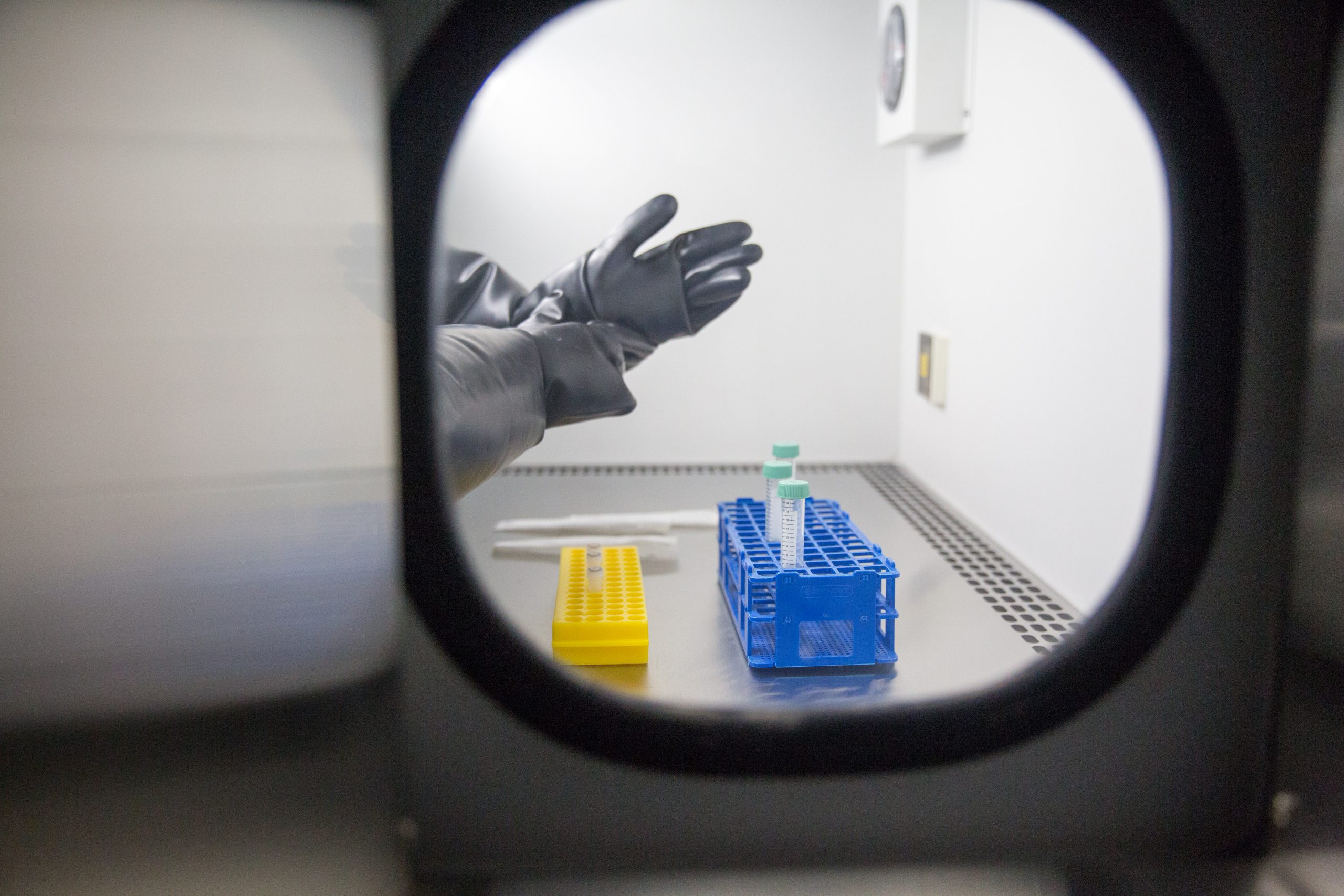
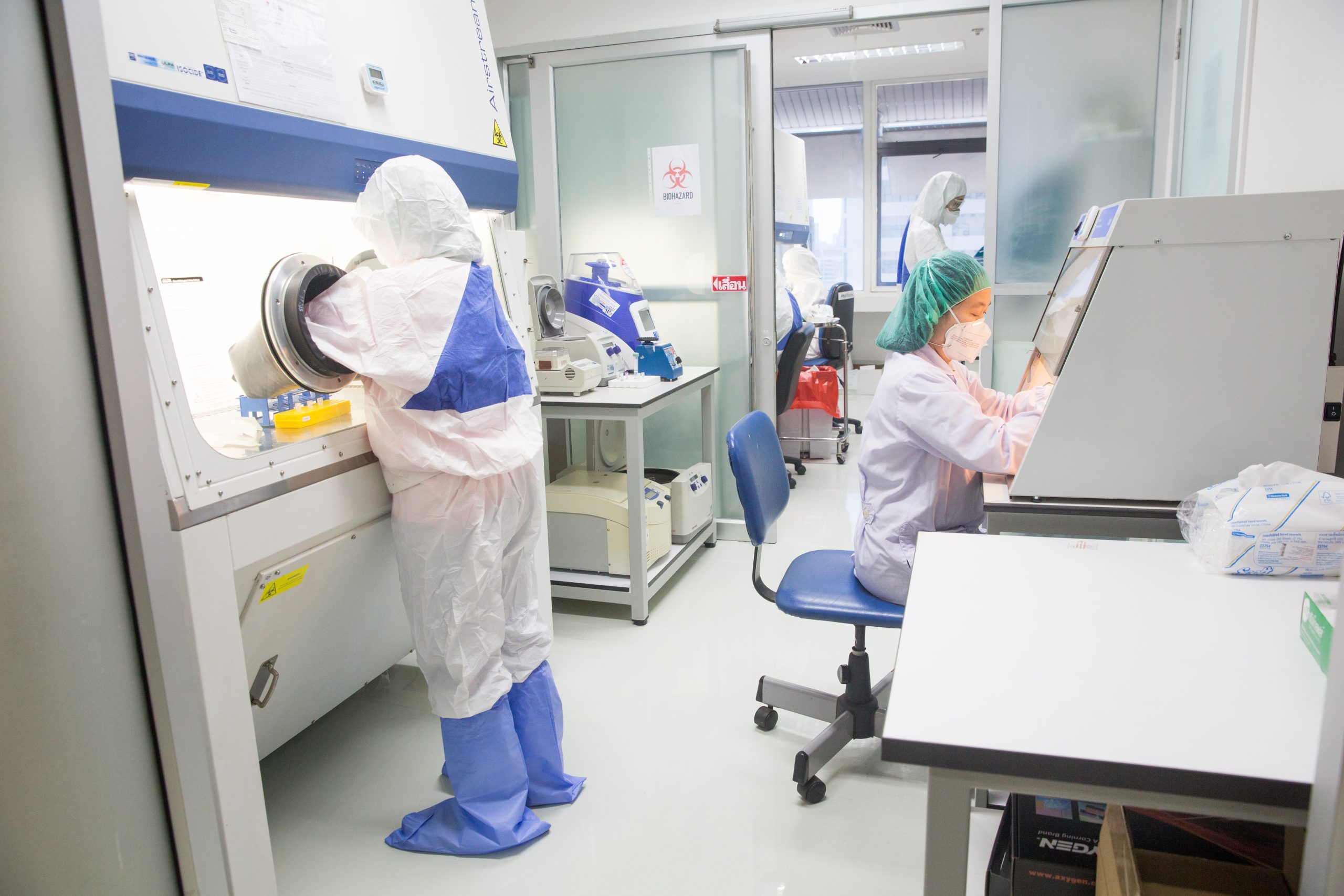
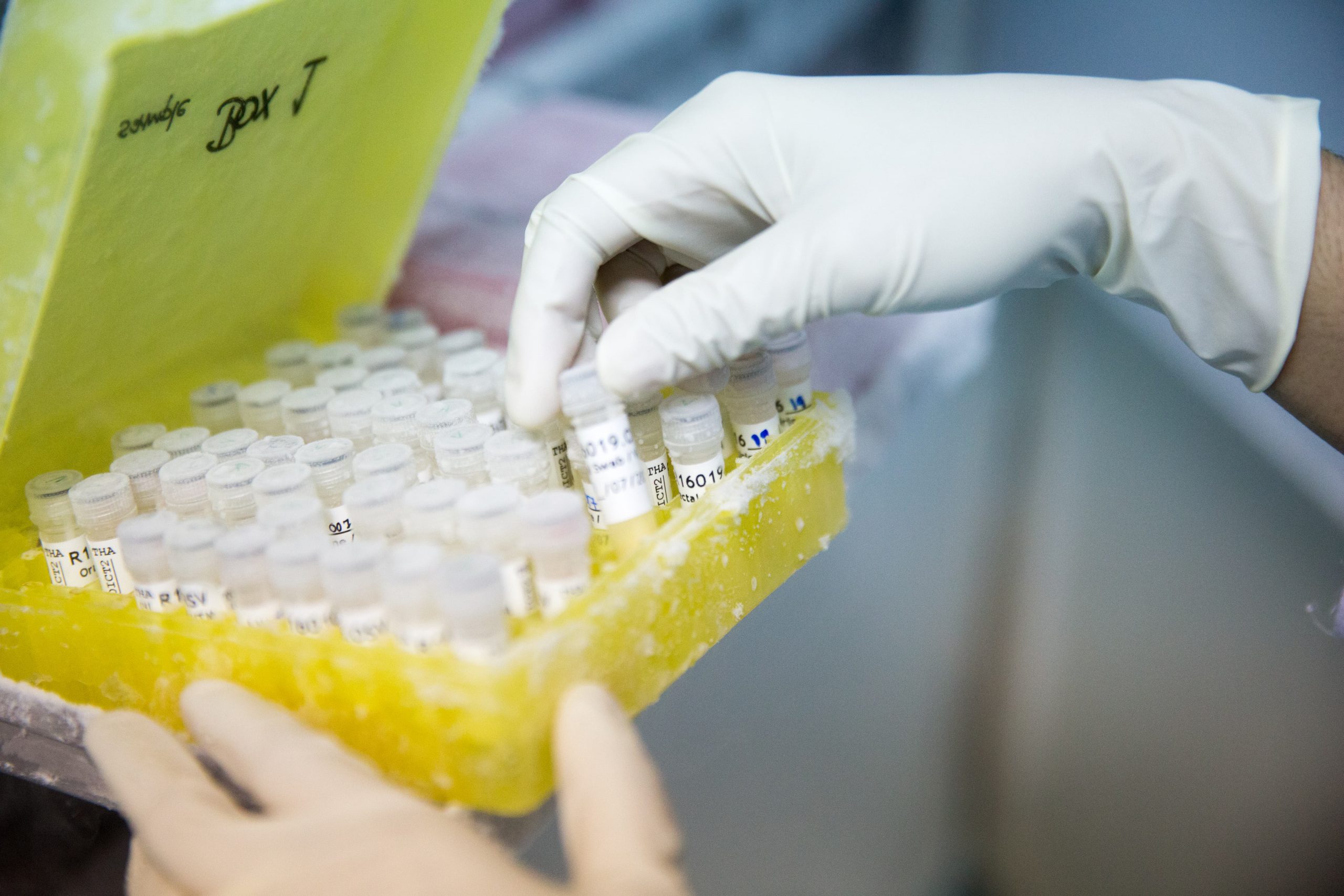
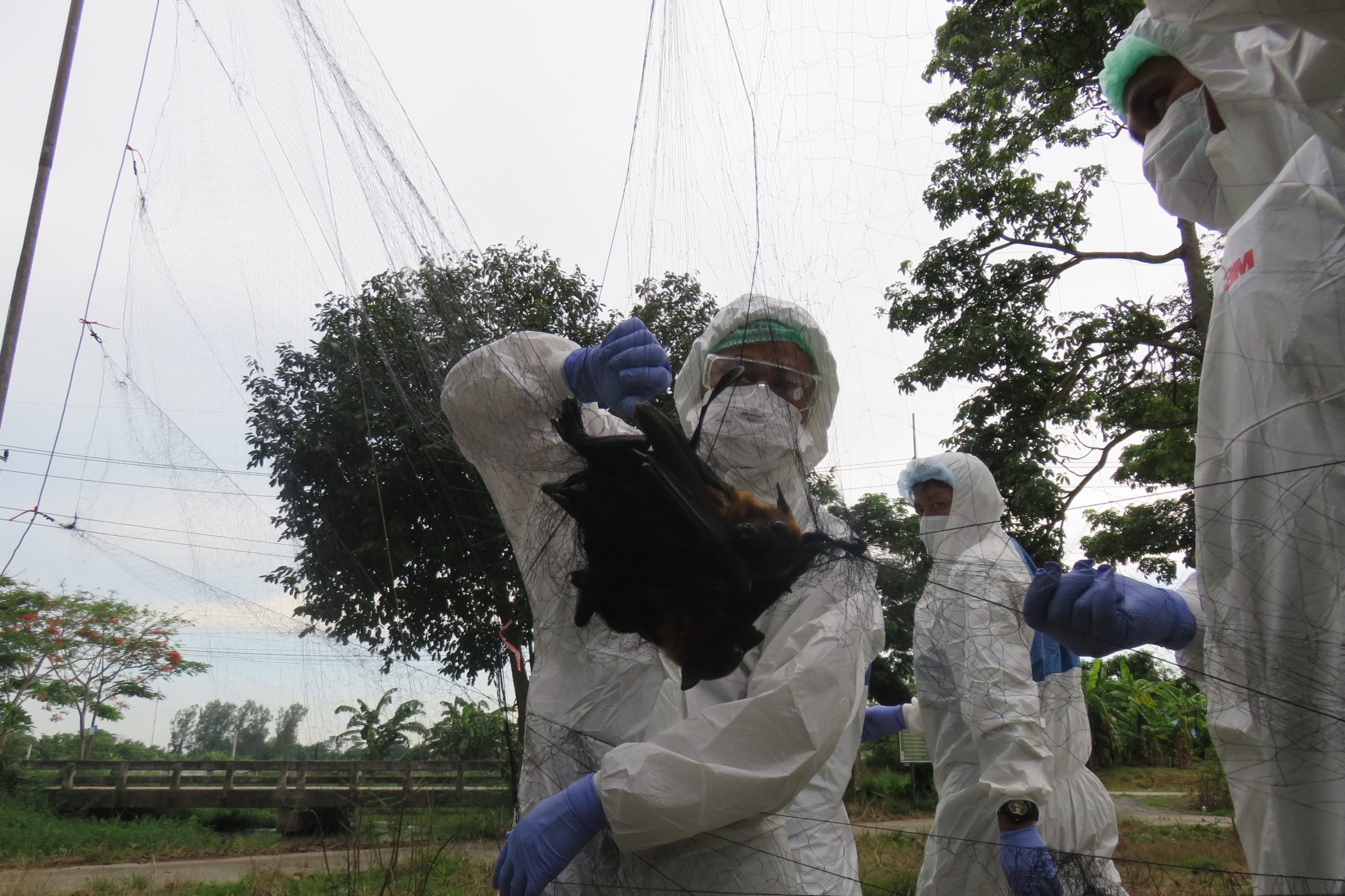
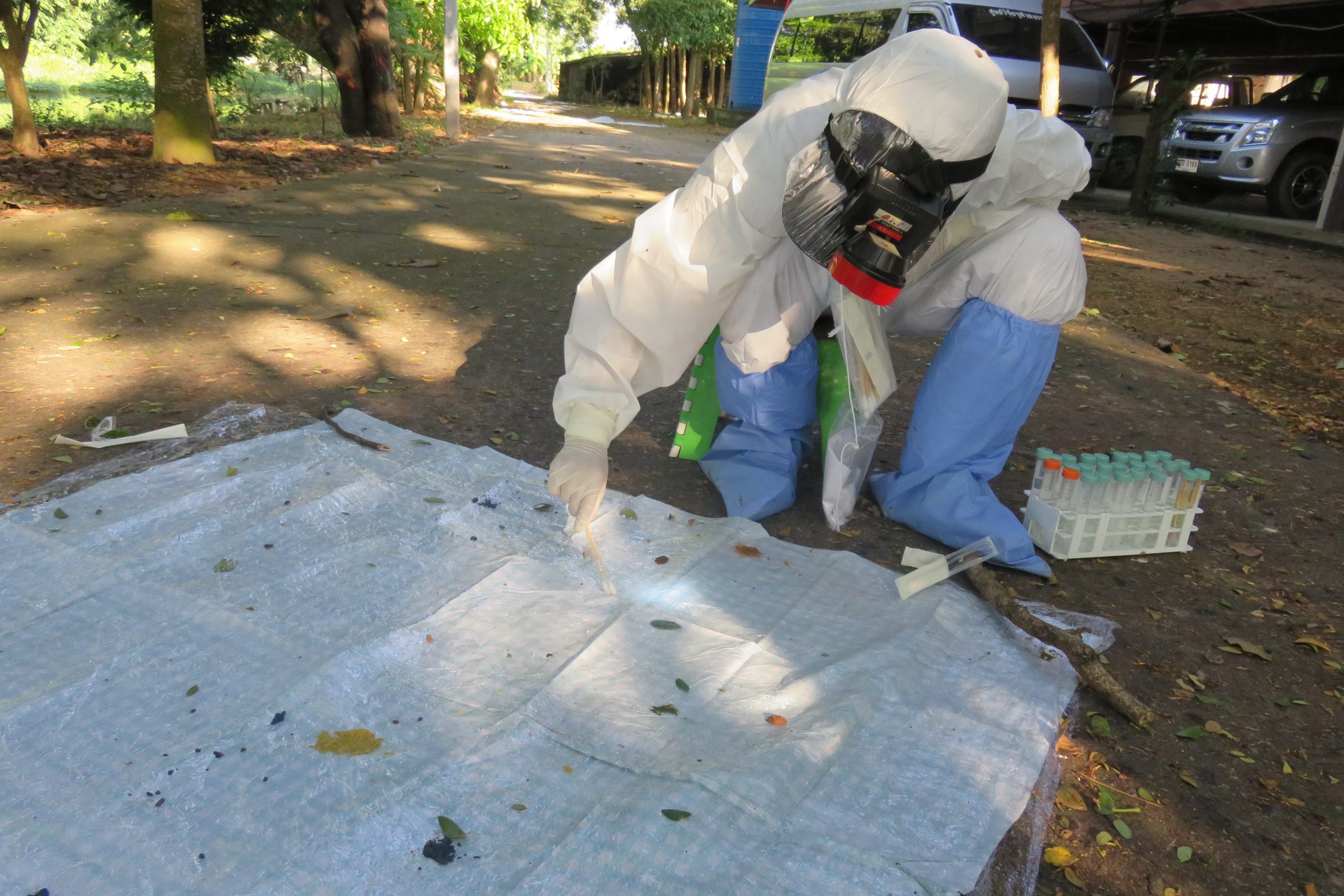

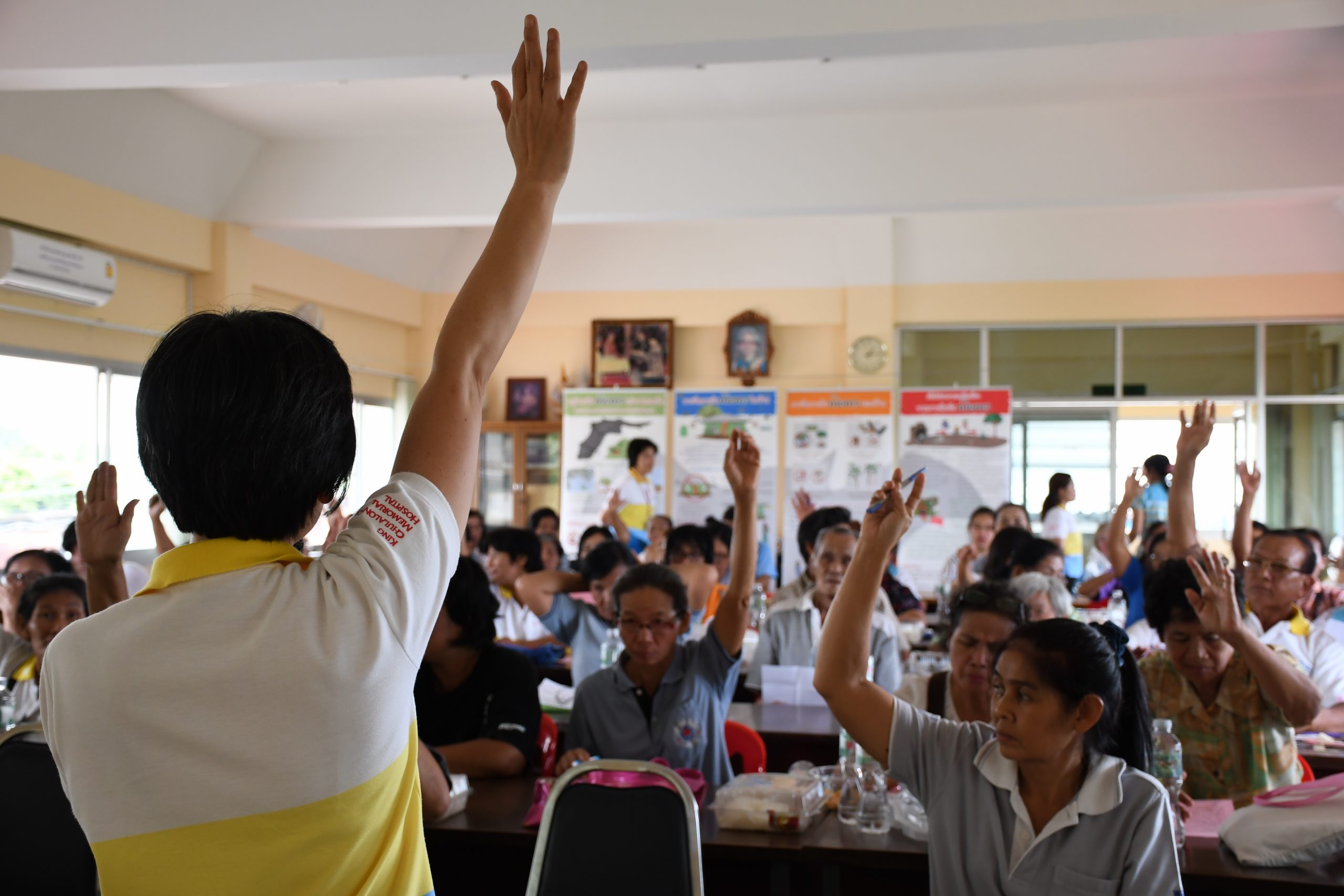
Service Time and Location
The Thai Red Cross Emerging Infectious Diseases Health Science Centre,
- 08.30 – 17.00 hrs. (except public holidays)
- 24 hour service in case of emergency.
Bhor Por Ror building, 9th Floor, Room 901/15
Contact
Name
The Thai Red Cross Emerging Infectious Diseases Health Science Centre
Bhor Por Ror building, 9th Floor
Tel
02 256 4000 Ext. 3622
Website

